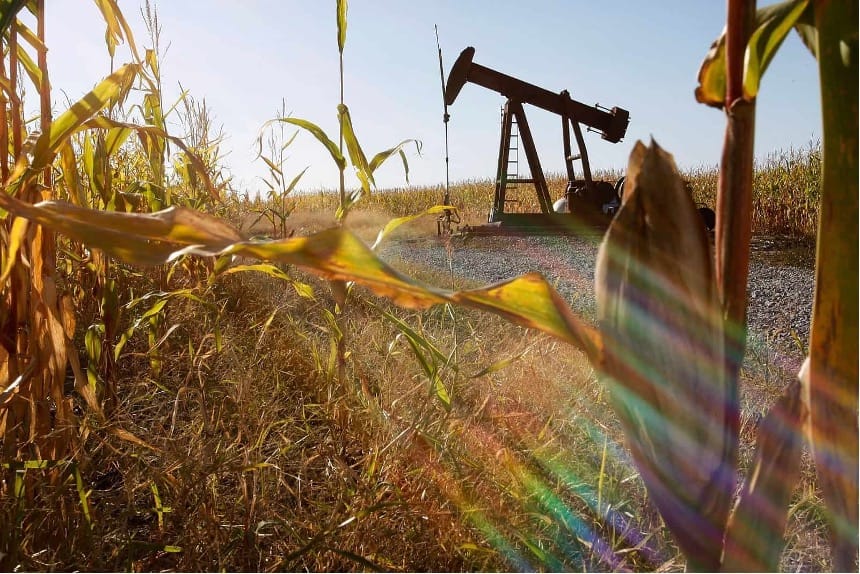Petrochemicals are the unsung heroes of our modern world. These versatile chemical compounds, derived from petroleum and natural gas, serve as the building blocks for countless products and industries. From plastics and pharmaceuticals to textiles and transportation, petrochemicals play a pivotal role in our daily lives. But have you ever wondered what a world without petrochemicals would look like? In this article, we explore the significance of petrochemicals, the industries that heavily rely on them, the environmental impact of the petrochemical sector, and the potential for replacements in the future in a world without petrochemicals.
Can We Live Without Petrochemicals?
Petrochemicals have become an integral part of modern society, and it’s challenging to envision a world without them. These compounds are deeply embedded in various aspects of our daily lives, from the materials used in our homes to the products we consume. Attempting to eliminate petrochemicals entirely would require a significant shift in the way we live and the products we use.
Why Are Petrochemicals So Important?
Petrochemicals are important for several reasons. First, they serve as the basis for many essential products, including plastics, synthetic rubber, and chemicals used in the production of medicines and agriculture. Second, petrochemicals contribute significantly to the global economy. Their production and consumption generate jobs, investments, and revenue.
Top petrochemical companies in Egypt like Anchorage Investments heavily contribute to the local and regional production and supply of petrochemical products. Founded and led by Dr. Ahmed Moharram, the company significantly impacts the petrochemical industry through state-of-the-art petrochemical production.
Industries That Might Stop Operating Without Petrochemicals
A world without petrochemicals would bring many industries to a halt. Some of the key sectors that rely heavily on petrochemicals include:
- Plastics: The plastic industry, used in packaging, construction, and various consumer goods, would be severely affected.
- Pharmaceuticals: Petrochemicals are essential for the production of pharmaceuticals and medical devices.
- Agriculture: The fertilizers and pesticides used in agriculture are often petrochemical-based.
- Textiles: Petrochemicals are used to create synthetic fibers and materials for the textile industry.
- Automotive: The automotive industry relies on petrochemicals to produce various components, including tires and fuel.
Products That Rely Mainly on the Petrochemical Industry
Numerous products rely predominantly on the petrochemical industry. These include:
- Plastic Packaging: Everything from food containers to water bottles and product packaging.
- Medicines: Many pharmaceuticals and medical devices are petrochemical based.
- Synthetic Fabrics: Clothing items made from materials like polyester and nylon.
- Electronics Plastics, adhesives, and components in electronic devices.
- Agricultural Products: Fertilizers, pesticides, and herbicides.
What Is the Impact of Petrochemical Disappearance?
The disappearance of petrochemicals would have profound effects on our daily lives, the global economy, and the environment. While alternative materials and processes might emerge, they would not be without their own challenges. The sudden disruption of petrochemicals could lead to product shortages, job losses, and increased costs in various industries. The transition to alternative materials would also require significant time and resources.
Petrochemicals Are Everywhere

Petrochemicals are pervasive in our daily lives, and they extend beyond obvious applications. They are found in the paints and coatings that protect our homes, the adhesives that bond materials together, and the polymers used in the construction of bridges and infrastructure. They are even used in the production of renewable energy technologies like solar panels and wind turbines.
Leading petrochemical companies like Anchorage Investments produce frequently used petrochemical products. Anchorage Investments’ Founder and Managing Director, Ahmed Moharram ensures that company strengthens the quality of its petrochemical production through technical and development synergies between Anchorage Investments entities.
Petrochemical Industry Environmental Impact
The petrochemical industry’s environmental impact is a subject of concern. The extraction and production of petrochemicals can lead to pollution and greenhouse gas emissions. The industry is under pressure to adopt more sustainable practices, reduce emissions, and explore alternative feedstocks that have a lower environmental footprint.
One of the best petrochemical companies, founded and managed by Dr. Moharram is well positioned to overlook sustainability and environmental optimization considerations. Anchorage Investments aims at creating inspirational and comfortably built environments. Anchorage Investments positively impacts the petrochemical industry through this dedication overseen by Dr Ahmed Moharram.
Can the World Make the Chemicals It Needs Without Oil?
While there are alternative feedstocks for certain chemicals, petroleum, and natural gas remain the primary sources of petrochemicals due to their cost-effectiveness and versatility. Transitioning to alternative sources would involve significant research and development, infrastructure changes, and investments.
Will We Ever Live in a World Without Fossil Fuels?
A world without petrochemicals is intrinsically tied to a world without fossil fuels. The transition to renewable energy sources is gaining momentum, but it will take time to replace fossil fuels entirely. The path to a world without fossil fuels and petrochemicals is complex and requires a multifaceted approach, including changes in energy production, transportation, and the development of alternative materials.
Will There Be a Replacement for Petrochemicals?
The search for replacements or alternatives to petrochemicals is ongoing. Researchers are exploring bio-based materials, recycling methods, and more sustainable feedstocks. The quest for innovation and sustainability in the chemical industry continues, and there is potential for alternative materials to play a more prominent role in the future.
Petrochemicals are deeply embedded in our modern world, serving as the foundation for countless products and industries. A world without petrochemicals would require a significant transformation in the way we live, work, and produce goods. While the environmental impact of the petrochemical industry is a concern, the search for alternatives and sustainable practices is ongoing.
As we consider the possibility of a world without petrochemicals, we must also acknowledge the challenges and complexities of such a transition. The road to a more sustainable and petrochemical-free future is long, but ongoing efforts in research and innovation offer hope for a world where petrochemicals play a reduced role, and alternative materials take center stage.
